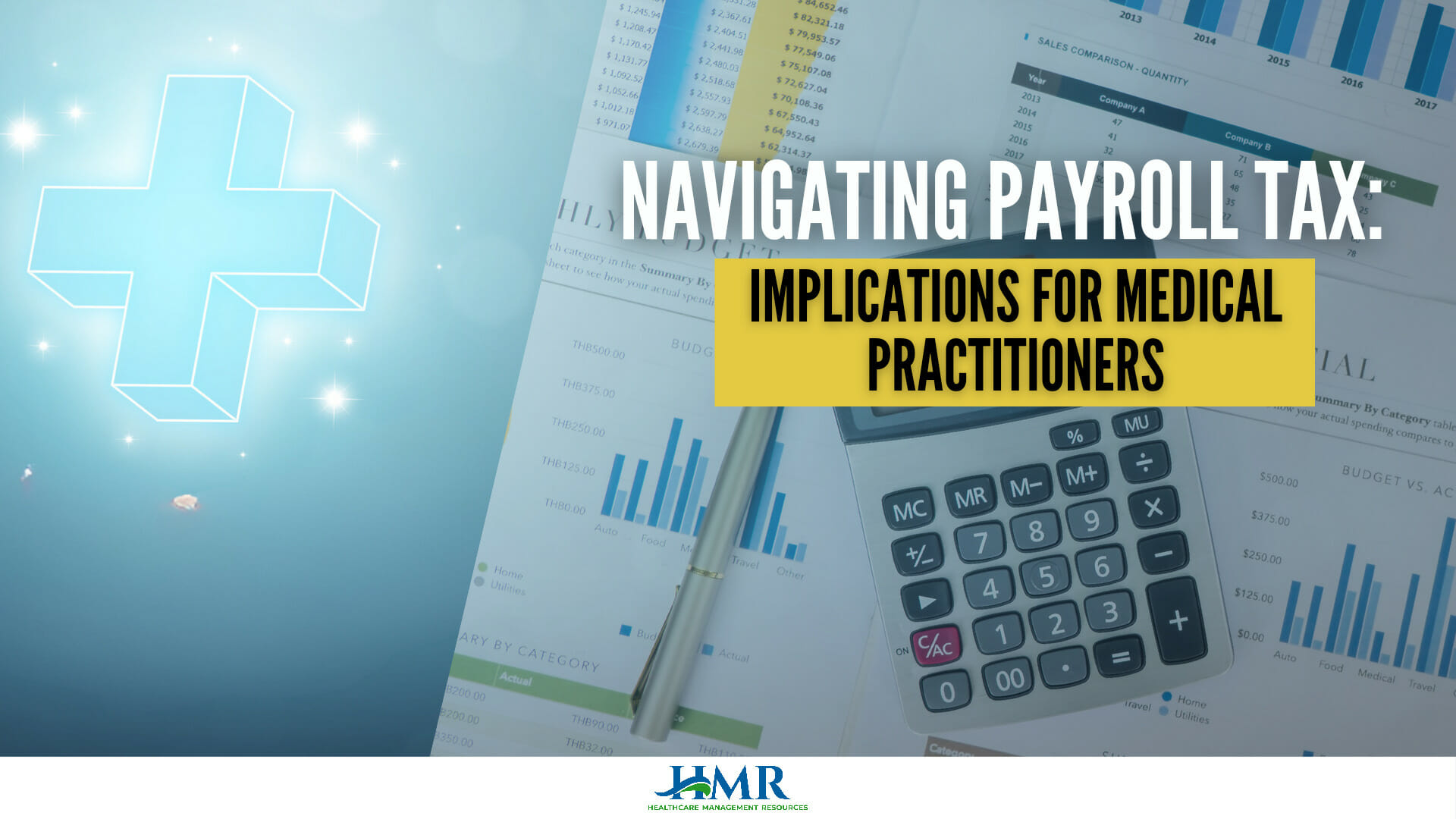Navigating Payroll Tax For Medical Practitioners

Payroll tax is a significant consideration for businesses across various industries, and the healthcare sector is no exception. Medical practitioners, whether operating their private practices or working as employees, need to understand the implications of payroll tax on their financial management. This blog explores the complexities of payroll tax specifically relevant to medical practitioners, shedding light on its impact and providing insights to navigate this aspect of their professional lives.
Understanding Payroll Tax
Payroll tax is a state-level tax imposed on employers based on the wages paid to their employees. It helps fund essential public services and infrastructure. The specific regulations and thresholds for payroll tax vary by jurisdiction, adding to the complexity of compliance for medical practitioners who often operate across multiple locations or employ staff members in various states.
Payroll Tax and Medical Practices
Employee Wages
Medical practitioners who have employees, such as nurses, medical assistants, or administrative staff, must account for payroll tax on their wages. The tax liability is generally based on the total wages paid and can vary depending on the applicable tax rates and thresholds.
Independent Contractors
Medical practices may engage independent contractors for certain services. It is crucial to properly classify these workers to ensure compliance with payroll tax regulations. Misclassifying independent contractors as employees can lead to penalties and additional tax liabilities.
Interstate Operations
Medical practitioners operating across multiple states need to be aware of the payroll tax regulations in each jurisdiction. The varying thresholds and rates can impact the overall tax liability for the practice.
Payroll Tax Exemptions and Deductions
Some jurisdictions may offer exemptions or deductions for specific categories of medical practitioners or healthcare services. Understanding these exemptions and deductions can help reduce the overall payroll tax burden.
Compliance and Reporting
Payroll Systems
Implementing robust payroll systems and software can simplify payroll tax calculations and reporting. These systems can automate tax calculations, maintain compliance with changing regulations, and generate necessary reports.
Timely Filing and Payment
Medical practitioners must ensure timely filing and payment of payroll taxes to avoid penalties and interest charges. Adhering to the prescribed deadlines is essential to maintain compliance.
Professional Assistance
Given the complexities of payroll tax, seeking professional assistance from accountants or tax advisors with expertise in the healthcare industry can help ensure accurate compliance and minimize the risk of errors or audits.
Managing Payroll Tax Effectively
Proactive Planning
Medical practitioners should proactively plan and budget for payroll tax expenses as a part of their overall financial management strategy. This includes forecasting tax liabilities, considering potential exemptions or deductions, and accounting for any regulatory changes.
Staffing Considerations
Medical practitioners should evaluate the financial impact of employing staff members versus engaging independent contractors. Proper classification can help optimize payroll tax obligations.
Ongoing Education and Awareness
Staying informed about changes in payroll tax regulations is crucial. Medical practitioners should invest time in understanding the evolving landscape, attending relevant seminars or workshops, and leveraging resources provided by tax authorities.
Final Thoughts
Navigating payroll tax is an essential aspect of financial management for medical practitioners. Understanding the implications, compliance requirements, and strategies for effective management can help mitigate risks, optimize tax obligations, and ensure smooth operations. By proactively educating themselves, leveraging professional assistance, and implementing robust systems, medical practitioners can navigate the intricacies of payroll tax while focusing on providing quality healthcare services to their patients.
